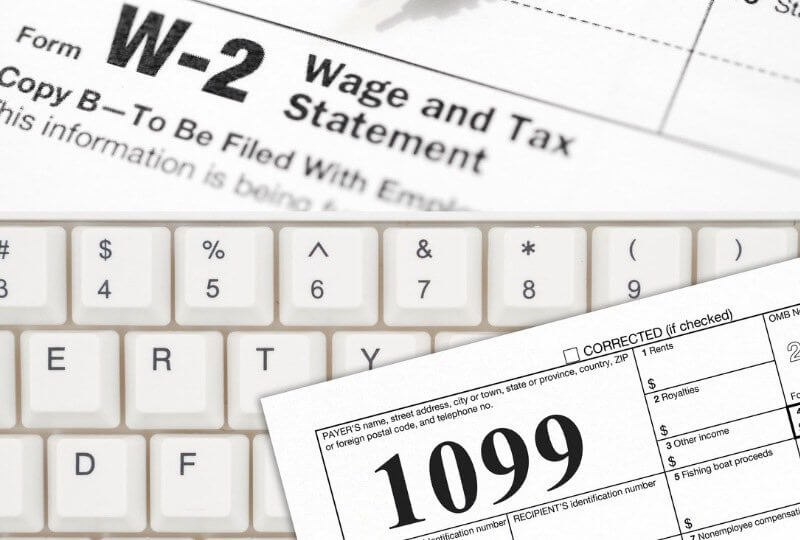The gig economy has reached per diem healthcare professionals. But at tax time, do you know how employee W-2 vs 1099 independent contractor status affects you?
This article was written by the Matchwell clinician job marketplace team; we are not tax professionals. Please consult your tax professional for your specific tax liabilities.
It’s tax season and the time has come for all of us to start gathering the documents we need to file. As you do, you may find yourself wondering, Did I pay enough taxes, or will I owe more money when I file?”
The answer to this question can get complicated-especially if you’ve picked up a second job or participated in the gig economy-defined as short-term employment opportunities such as driving for Uber or working shifts through a staffing agency. In some of these positions you may have been hired as a contractor (receiving a 1099 tax form). In others, you may be considered an employee (receiving a W-2 tax form).
Contractors receive paychecks that do not have any taxes withheld. As such, the pay feels higher, but carries a higher tax burden at year-end than if you were classified as an employee. Knowing this can not only help you prepare for tax time, but determine what opportunities are right for you in the future.
Since 1990, the self-employment tax rate for Social Security and Medicare for independent contractors has been 15.3% of all earnings. When you work as a W-2 employee, your employer pays half of that amount for you as a benefit of employment and withholds the other half from your paycheck to cover your share. However, if you’re a 1099 contract employee, you are required to pay the full amount of these taxes yourself … and you are required to do so quarterly. Failure to do so can result in additional tax penalties.
Read the Fine Print
The trend of staffing agencies-particularly those with an app-treating healthcare workers as Independent Contractors is worrying to us at Matchwell. It can be easy to miss this W-2 versus 1099 distinction, so be sure to ask when securing any travel, contract, or per diem work.
If you received a Form 1099 from an employer or agency, you were classified as an independent contractor and not as an employee. When you got paid, none of the taxes that you owe were withheld. Worse, the burden of paying the employer portion of the taxes instead falls to you. This means you personally owe the government both the employer and employee share of the taxes!
In addition to the tax burden, as a 1099 contractor, you are not eligible for unemployment compensation. You are also not covered byWorkers’ Compensation insurance should you be injured on the job. You may even be required to buy your own liability or malpractice insurance to cover you if something goes wrong.
Matchwell’s Take
Obviously, we’re biased. Our take is that being classified as an employee protects you from unexpected tax burdens and serves as a safeguard against a financial emergency should you be injured on the job or experience a time of unemployment. Almost all traditional staffing agencies have you covered in this manner and will classify you as a W-2 employee. But if you’re exploring some of the newer staffing agencies with an app, take measures to clarify if you will be an employee or an independent contractor. Having the conversation on the front end will help prevent unexpected year-end tax obligations.
We want to empower healthcare professionals all over the US to take part in the gig economy, especially as the clinical workforce shortage intensifies. Knowing your rights and responsibilities as an independent contractor or W-2 employee will help you make an informed decision about your employment options. Equip yourself by learning more about these issues through the IRS checklist for W-2 vs. 1099 workers.
What Do You Think?
What’s your experience working as W-2 or 1099? Please comment on this blog or share on social media. Together we can define ways to encourage more people to begin and continue meaningful careers in healthcare.

